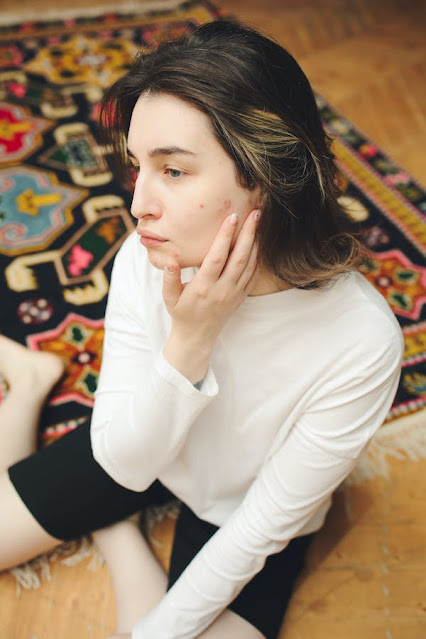Acne and pimples problems and their Solution
Description:
Due to its prevalence, acne is accepted as a typical aspect of puberty. But even knowing that sometimes doesn't help, especially if you have a large pimple on your face. What exactly is acne, and how can it be treated?
Acne: What Is It?
• Blackheads, whiteheads, pimples, and cysts are some of the numerous forms of bumps that acne, a skin disorder, can present as. The hormone changes associated with puberty are the cause of acne in teenagers. It's more likely that you will get acne if your parents did when they were teenagers. However, by the time most people are out of their teens, their acne has virtually completely vanished.
• Acne vulgaris (the word vulgaris means of the common type) is the form of acne that many teenagers experience. Typically, the face, neck, shoulders, upper back, and chest are affected.
What Brings On Acne?
• Your skin's pores and hair follicles both have sebaceous glands, often known as oil glands. These glands produce sebum, an oil that moisturises your skin and hair (SEE-bem). The sebaceous glands typically produce the ideal quantity of sebum. However, hormones encourage the sebaceous glands to produce more sebum as the body starts to mature and develop.
• Too much sebum and too many dead skin cells can cause pores to clog. The result is that bacteria, particularly Propionibacterium acnes, can become entrapped and grow inside the pores. Acne is brought on by this, which results in swelling and redness.
• A whitehead is a pore that constricts, shuts, and protrudes from the skin.
• A blackhead is an open pore that clogs up but doesn't close, and it has a darker top surface.
• A pimple is a tiny red lump that develops when the wall of a pore opens and allows oil, germs, and dead skin cells to enter the skin. The body's response to the bacterial infection sometimes causes pimples to have a top packed with pus.
• Nodules can result from a clogged pore that opens up extremely deeply in the skin. These painful infected lumps or cysts are larger than zits. Rarely, big cysts that resemble acne could actually be boils brought on by a staph infection.
Can I Stop Acne?
• Acne can sometimes be difficult to prevent. However, heed this advice.
• Once or twice a day, wash your face in warm water with a light soap.
• Scrubbing your face vigorously with a washcloth won't get rid of acne and could make it worse by irritating the skin and pores. Make an effort to wash your face as gently as you can.
• Make sure your sunscreen and makeup are noncomedogenic or "nonnacnegenic" if you wear them. It won't clog your pores and cause acne as a result. Make sure to thoroughly wash off all makeup after washing your face to prevent clogged pores.
• You've provided some great tips for managing and preventing acne! These practices, like avoiding hair products on the face, washing after exposure to oil, and using appropriate skincare products, can indeed help maintain clearer skin. Additionally, monitoring your diet for potential triggers and making adjustments can be beneficial for some individuals. Remember to follow instructions on skincare products to avoid over-drying or worsening your skin.
• The sun doesn't truly help with acne. While a tan will temporarily lessen the severity of acne, it won't make it go away forever. In fact, some people discover that the oils produced by their skin after exposure to the sun actually make their pimples worse.\
What Else Can Be of Use?
• People occasionally still develop acne even after using oil-free cosmetics, lotions, and adequate washing techniques. This is completely natural. In fact, hormonal shifts can cause some females who typically control their acne to develop some a few days prior to the onset of their period. Premenstrual acne is what this is.
• Some people seek medical treatment for acne from a dermatologist (a physician who specialises in treating skin conditions). Prescription drugs may be prescribed by a doctor to treat the acne. Depending on the severity of the individual's acne, this may entail using prescription creams to stop pimples from forming, taking antibiotics to destroy the bacteria that contribute to pimples, or even having minor surgery.
• Do not touch, pinch, or pick at a pimple that you see in the mirror. It can be very tempting to try to get rid of a pimple, therefore this might be challenging. However, if you play with pimples, popping or opening them up will exacerbate the inflammation already there. Additionally, your hands' oil is useless! However, picking at pimples can also result in tiny, permanent scars on your face.







